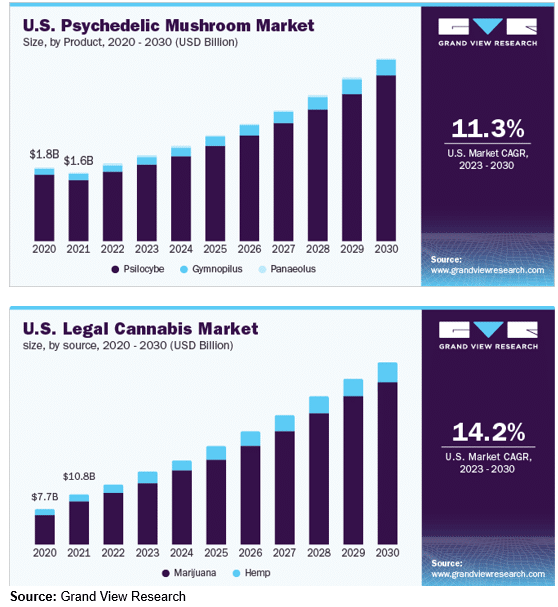A version of this public comment was submitted to the Colorado Department of Regulatory Agencies on September 16, 2024.
We commend the Colorado Department of Revenue (DOR), along with its advisors and stakeholders, for their thoughtful and diligent approach in crafting this regulatory framework. Overall, the process seems to have produced a sensible set of rules that balance client safety with rigorous oversight of licensees. As this is the first comprehensive regulatory framework of its kind, DOR’s efforts are particularly significant, as the strengths and any potential shortcomings of these rules will likely serve as models for other states.
Recognizing that policymaking is a continuous process, we have identified several areas where we believe the draft permanent rules on fees proposed by DOR could be enhanced:
- 2005.A.1 – The compliance and application fee seem unrelated to the amount of work needed to process the application. Unless it takes over twice the labor to process a Standard Healing Center ($5,000) from a Micro-Healing Center ($2,000), it is unclear why they should be priced so differently. Fees should be priced based on estimated labor involved in being responsive to applicants and approval timelines.
- 2005.A.1 – It is unclear why a “Facilitator Owner” needs a separate license from an “Owner.” Only applicants regulated by natural medicine rules should need to apply for a license and only for the regulations for which they need to demonstrate compliance.
- 2005.A.2 – Reapplication is too expensive. Starting in 2026, fees increase substantially ($14,000 for a Standard Healing Center). Given that many applicants will have been in business for over a year and may not change their business practices, processing their application may be relatively quick. We recommend that there be no renewal fee for applications that are the same and a fee of less than $100 for applications with minimal changes. We recommend that DOR not estimate fees for new entrants in 2026 and instead only create a reapplication fee for existing businesses.
Additionally, we have general comments on the fee amounts. While the fees proposed may be within the cost range of Colorado’s fee structure for commercial cannabis licenses, the total addressable market for psilocybin is not anticipated to be anywhere close to cannabis. According to market analytics firm Grand View Research, the total U.S. market demand for psilocybin amounted to $1.8 billion in 2022 and is expected to grow to $4.3 billion by 2030. By contrast, the same firm estimates U.S. cannabis demand amounted to $22.1 billion in 2022 and will increase to $134.4 billion by 2030. These figures indicate that consumer demand, measured in dollars, for cannabis is 12 to 31 times greater than for psilocybin.

As a result, the cost of a psilocybin license fee will be amortized over a far smaller volume of sales and could have a material effect on the price of legal psilocybin products relative to competing illicit alternative products. We recommend that this market reality be reflected in licensing costs, with substantially lower fees assessed to prospective psilocybin licensees than cannabis licensees.
DOR estimates needing nine full-time staff. We recommend hiring a smaller number of staff and increasing staff as needed, so long as applications can be approved within 2 weeks and correspondence questions can be answered within 48 hours during the business week. Contract labor could provide additional flexibility during periods of high demand.
Moreover, this may be seasonal work, so we recommend hiring not based on yearly need but quarterly labor needs.

